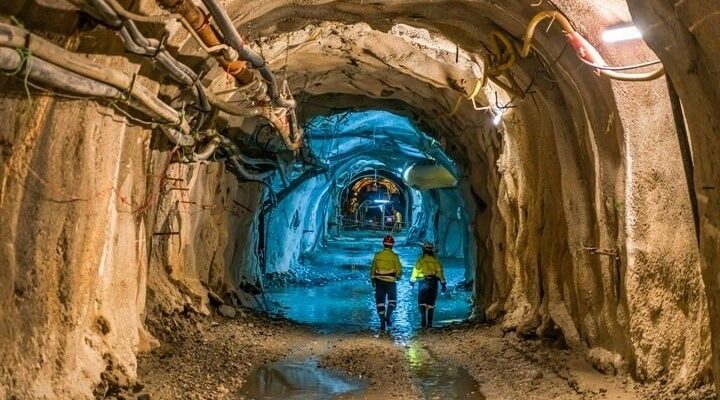
Countries all over the world are in a rush to find and develop reserves of lithium, dubbed the “white gold” for being a key component in batteries, including electric vehicles and energy storage devices.
Recently, Elon Musk described lithium batteries as “the new oil, as Tesla broke ground on a Texas lithium refinery that the billionaire said should produce enough of the battery metal to build about [one] million electric vehicles (EVs) by 2025, making it the largest North American processor of the material.”
China recently formally opened a three-hundred million dollar lithium processing plant in Zimbabwe, which has one of the world’s largest reserves of the metal.
The plant opened by Prospect Lithium Zimbabwe, an arm of Chinese company Zhejiang Huayou Cobalt, can process 4.5 million metric tons of hard rock lithium into concentrate for export per year, the Associated Press reported.
“Lithium is the mineral of the present and the future…and value addition will position our country as an emerging and competitive player in the global lithium value chain,” Zimbabwe President Emmerson Mnangagwa said.
Earlier in 2023, Bolivia picked a consortium that includes China’s battery giant CATL to develop its largely untapped lithium reserves.

A report by Reuters said the deal would see the consortium partner’s direct lithium extraction from Bolivia’s Uyuni and Oruro salt flats.
The partnership would give the CBC consortium the right to develop two lithium plants that can produce up to twenty-five thousand tons of battery-grade lithium carbonate each annually.
Earlier in September, Portugal gave the green light for lithium mining in the northern region of Montalegre close to the Spanish border with a planned investment of around €650 million.
With production expected to start in late 2027, the field could contain twenty-seven million metric tons of “white gold,” capable of satisfying the needs of the EU for many decades. Iran’s Ministry of Industry, Mines, and Trade claimed in March 2023 that the Iranian province of Hamedan holds 8.5 million tons of lithium.
This new lithium reserve surpasses Chile’s 9.2 million metric tons, as recorded by the U.S. Geological Survey.
Huge lithium reserves found in Norway and the US
Reserves, discovered in Rogaland in southwest Norway by Anglo-Norwegian firm Norge Mining could have huge implications for the electric vehicle industry.
If further exploration provides favorable results, Norway plans to fast-track the mine with an estimated opening date of 2028.
A world-beating deposit of lithium along the Nevada–Oregon border could meet surging demand for this metal, according to a new analysis.
An estimated 20 to 40 million tons of lithium metal lie within a volcanic crater formed around sixteen million years ago. This is notably larger than the lithium deposits found beneath a Bolivian salt flat, previously considered the largest deposit in the world.
“If you believe their back-of-the-envelope estimation, this is a very, very significant deposit of lithium,” says Anouk Borst, a geologist at KU Leuven University and the Royal Museum for Central Africa in Tervuren, Belgium. “It could change the dynamics of lithium globally, in terms of price, security of supply and geopolitics.”
White gold lithium is an invaluable resource
The word “lithium” derives from the Greek for ‘stone’ (λίθος) and is a chemical element with the symbol Li and atomic number 3. It is a soft, silvery-white alkali metal. Under standard conditions, it is the least dense metal and the least dense solid element.
It has unique chemical and physical properties that make it an invaluable resource. Firstly, its atomic structure allows it to exhibit remarkable conductivity.
Furthermore, lithium’s low density, high specific heat capacity, and excellent heat transfer properties enable it to contribute to the efficiency of industrial processes, particularly in the aerospace and automotive sectors.
Lithium’s economic impact cannot be overstated. As the world transitions towards a greener future with increased emphasis on renewable energy sources, the demand for lithium and its applications is expected to skyrocket.
This surge in demand has created a thriving lithium mining and refining industry, particularly in countries with abundant lithium reserves like Chile, Australia, and Argentina.



